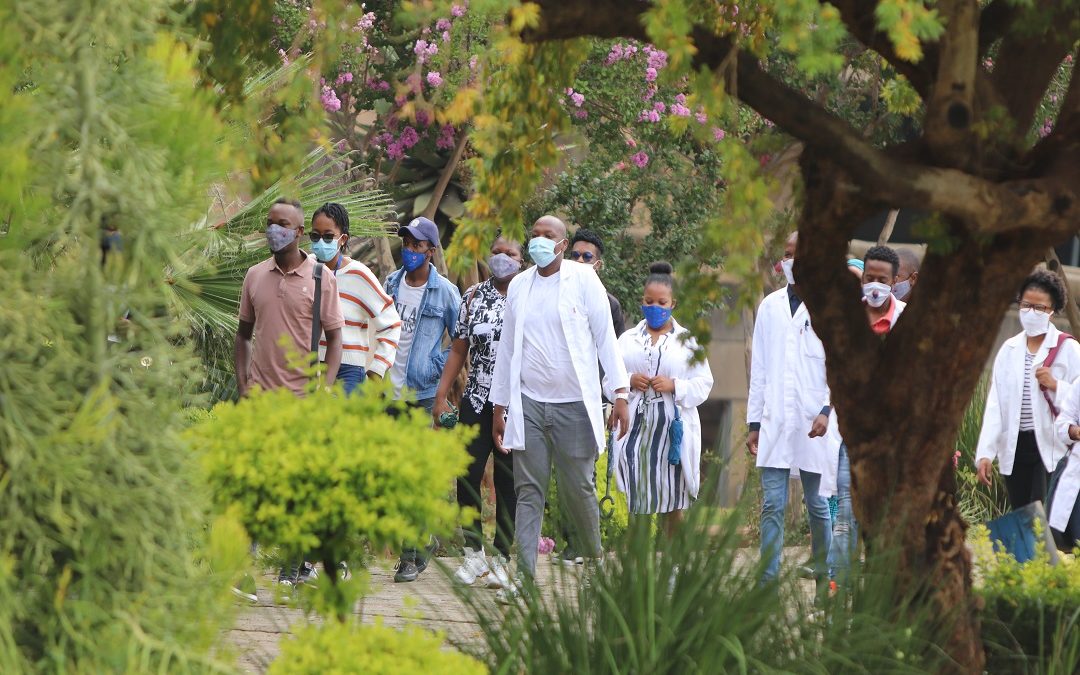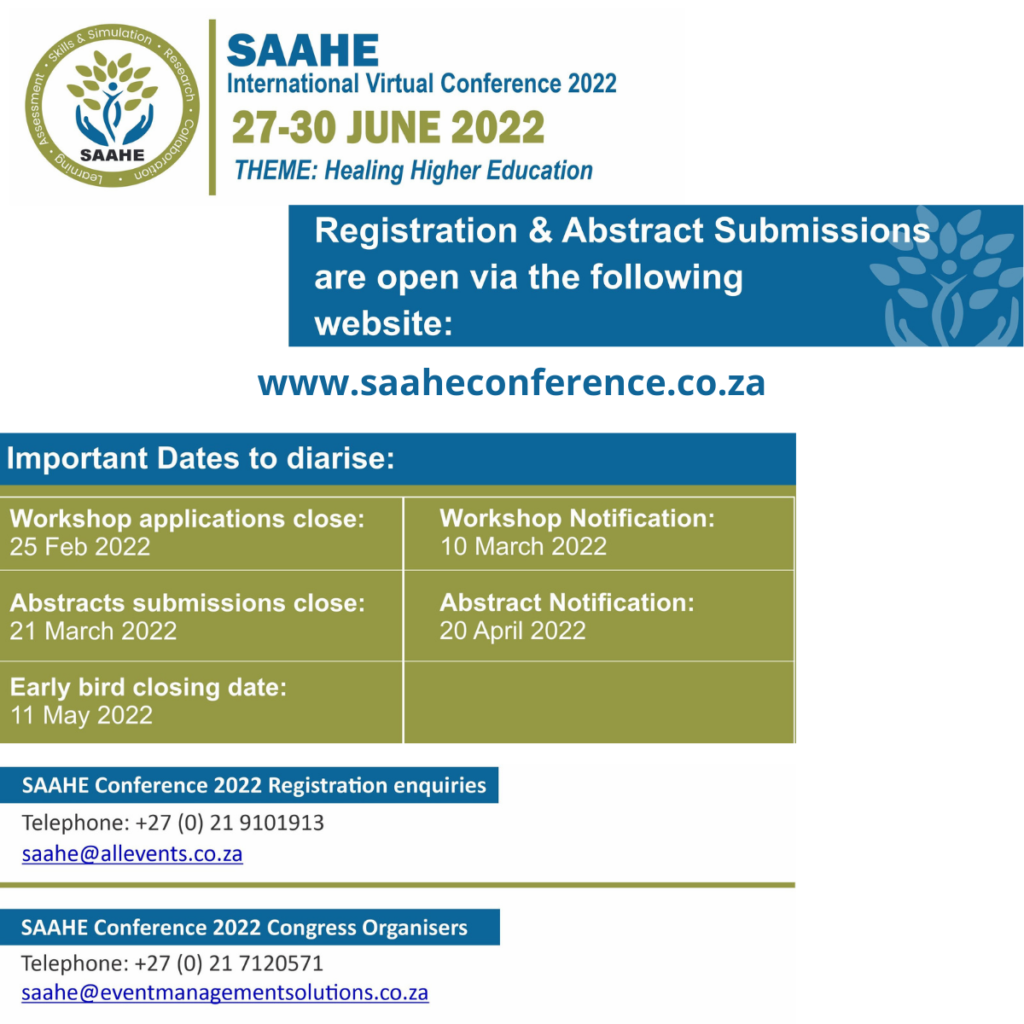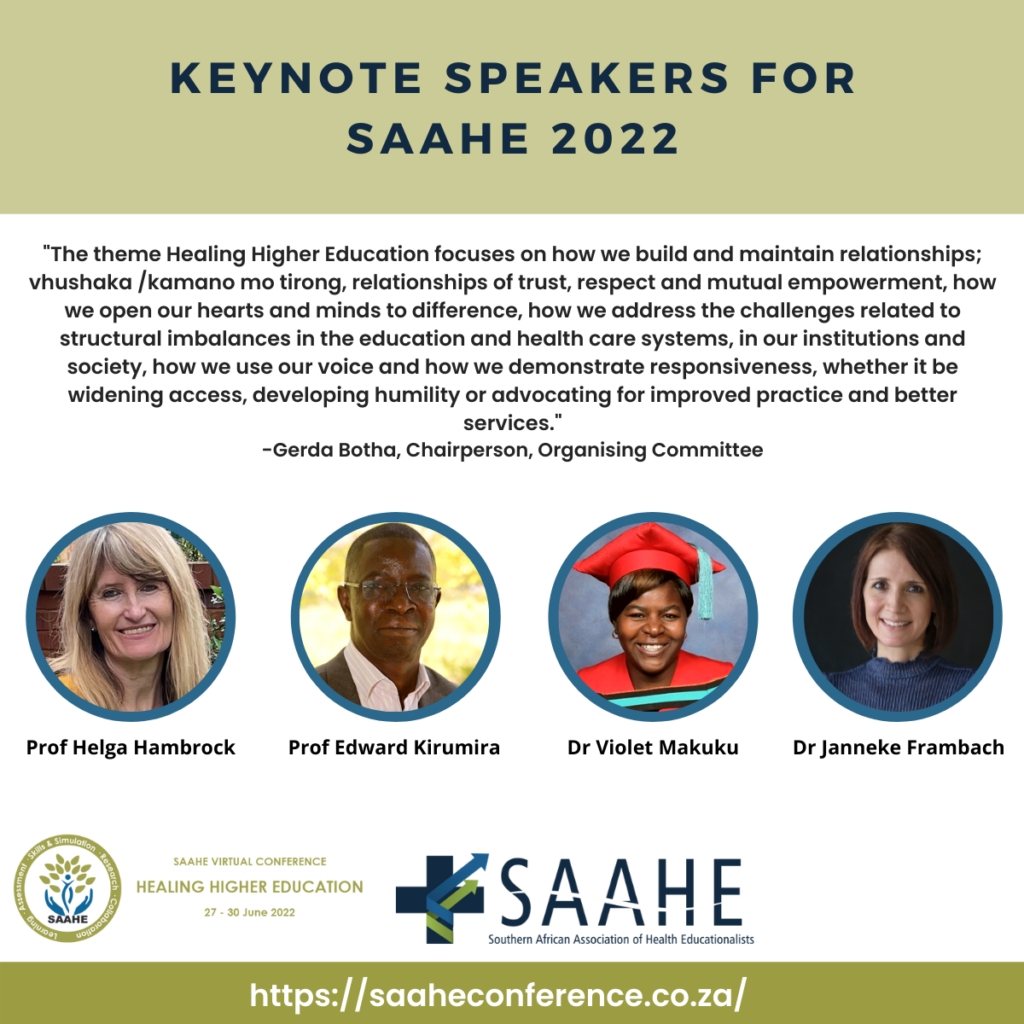
by Lorato | May 9, 2023 | Accolades and Achievements, Research, Student Media
Prof Larry Obi holds a terminal PhD degree in Medical Microbiology, obtained at the College of Medicine, University of Lagos, Nigeria. He has taught in different Universities in Nigeria, Zimbabwe, South Africa and served as visiting Professor to the Medical School, Makerere University, Uganda; Medical School, University of Malawi, Malawi and Medical School, Tohoku University, Sendai, Japan.
Throughout his career, he served at all levels of academia: Head of Department of Microbiology in two Nigerian Universities; founding Head of Department of Microbiology, University of Venda; Deputy Dean, School of Natural Sciences and Mathematics and later Acting Executive Dean, Faculty of Natural, Environmental and Integrated Studies, University of Venda; Director, School of Agriculture and Life Sciences, University of South Africa. He also served as Deputy Vice Chancellor, Academic Affairs and Research in two South African Universities, Walter Sisulu University and the University of Fort Hare. He, at various times, acted as Vice Chancellor in both Universities.
Prof Obi has supervised several postgraduate students, presented scientific papers at local and international conferences and published extensively in numerous journals with more than 100 publications to his name. He served on the board of the South African Council for Natural Scientific Professions (SACNASP) and the Board of the National Health Laboratory Service (NHLS). He is a member of the Specialist Committee of the National Research Foundation Rating Panel for Health Sciences, Specialist Committee for the FLAIR International Post-doctoral Fellowship Programme under the aegis of the African Academy of Sciences, Kenya and the Royal Society, United Kingdom. He is also a member of the Membership Advisory Committee (MAC), Health Sciences, Life Sciences and Agricultural Sciences of the Academy of Science of South Africa.
His academic pedigree is further exemplified by being the Principal and Country Investigator of a project on Family Planning in the context of HIV/AIDS, Principal Investigator of the Socio-economic impact of HIV/AIDS in South Africa, funded by the Australian Agency for International Development (AuSAID), World Health Organization (WHO) Expert Committee Member on Campylobacters and Campylobacteriosis, among others. Principal Researcher. Pathogenic and Molecular profiles of Aeromonas, Funded by the National Research Foundation, 2008 -2011.
He also worked on numerous projects such as the following:
- Principal Researcher: Key Medico-epidemiological issues in tackling the scourge of HIV/AIDS. Collaborative Project with Tohoku University, Japan, Funded by the National Research Foundation (NRF), South Africa and the Japanese Society for the Promotion of Science. 2009.
- Principal Researcher: Microbiology of Cosmetic and Medicinal Clays. Funded by Walter Sisulu University, 2009.
- Principal Researcher: Antibacterial activities of medicinal plants against selected pathogenic bacteria. Funded by Walter Sisulu University, 2009.
- Co-Principal Researcher: The possible role of Osteopontin and South African Medicinal plants in the management of HIV/AIDS ARV naïve patients and those on HAART. Collaborative Project with Tohoku University, Japan. Funded by the National Research Foundation, South Africa. 2010.
- Principal Researcher: Bactericidal Activities of Honey and propolis against enter pathogenic bacteria isolated from food and water samples in Limpopo and Eastern Cape Provinces. Funded by Walter Sisulu University, Mthatha, South Africa, 2010.
- Principal Researcher: Molecular landscape, antibiograms and antibacterial activities of selected medicinal plants against some enteric pathogens. Funded by the Medical Research Council (MRC) of South Africa, 2010.
- Principal Researcher: National Lotteries Research Grant Award, 2011.
- Principal Researcher: National Research Foundation Research Grant Award on Community Engagement, 2011.
- Principal Researcher: National Research Foundation (NRF) Grant on a Collaborative Project between South Africa and Namibia, 2012-2014.
- Principal Researcher: National Research Foundation (NRF) Grant on Incentives for Rated Researchers 2012-2016.
- Principal Researcher: Competitive Programme for Rated Researchers research Grant, 2015-2017.
- Principal Researcher: Indigenous Knowledge Research Grant, National Research Foundation, 2016-2018.

by Lorato | May 3, 2023 | Accolades and Achievements, Research, Student Media
Prof Mapaseka Seheri has been with SMU for sixteen (16) years serving in the Department of Virology and Research and Innovation Directorate and believes that this has provided her with a broad knowledge in research excellence and impact, teaching and learning, as well as the ability to successfully lead research enterprise and academic groups. “My current role as the Research and Innovation Director is to actively support the DVC Academic and Research in achieving the University Research and Innovation strategic objectives and to accelerate the following; 1) promote strategic collaborations and partnerships; 2)
promote interdisciplinary research and attract external research funding; 3) improve and enhance high quality research output with high impact; 4) promote and strengthen existing and emerging research focus areas; 5) attract postgraduate students and postdoctoral research fellows; 6) increase research capacity, attract and strengthen research teams. I am also the Director of the Diarrhoeal Pathogens Research Unit(DPRU)/WHO Rotavirus Regional Reference Laboratory (WHO RRL)/WHO collaboration Centre.
Prof Seheri’s research focus area addresses childhood diarrhoeal diseases nationally and regionally, prioritising the health of women and children in order to achieve the United Nations Sustainable Development Goals (SDGs), that would reduce maternal, neonatal and under-five mortality by 50% in the African Region. Diarrhoeal disease and pneumonia remain the leading causes of death in children < 5 years of age in sub-Saharan Africa.
She is a recognised scholar, leader and has extensive experience in molecular virology, disease surveillance systems, molecular epidemiology, interaction between host and virus, viral diversity, genetics and evolution, whole genome sequencing and bioinformatics for rotavirus and norovirus as well as other diarrhoeal pathogens, gut microbiome and metagenomics research, with Google Scholar Citations: 1690, h-index (Google scholar): 24 and Scopus h Index :21. Prof Seheri continued to publish at an international level of excellence in high quality journals and has more than 60 peer – reviewed articles to her name. She was awarded C1 NRF rating and has presented more than 100 papers at scientific conferences both locally and internationally. The research conducted supports the African Rotavirus Surveillance Network, Global Rotavirus Surveillance Network, Global Paediatric Diarrhoeal Surveillance and Global Paediatric Norovirus Surveillance Network.
Prof Seheri has trained, mentored and supervised 35 postgraduate students (PhD, MSc and Hons) and 4 Postdoctoral research fellows, who have successfully completed their studies. In addition, she currently has, 2 PhD, 5 MSc and 2 Hons students registered under her supervision. “I have also served as manuscript reviewer and external examiner for postgraduate students’ dissertations/thesis for various institutions locally and internationally such as; Technical University of Kenya, University of Venda, University of Pretoria, University of KwaZulu-Natal and University of North West, Mafikeng Campus. “As a collaborative effort jointly with WHO and partners, we successfully organised fourteen AFR RSN Inter-Country Training Workshops, and I have trained 42 scientists/ technologists from 29 African countries. I have earned local and international recognition in the field of diarrhoeal diseases and rotavirus, where I have made valuable contribution in the introduction of rotavirus vaccine in the African continent, pioneered the whole genome sequencing in African continent and my proven ability to successfully leading research and academic groups, by hosting the Rotavirus Regional Reference Laboratory – South Africa (RRL – SA), member of the African Rotavirus Surveillance Network and recently leading the Diarrhoeal Diseases and Vaccine Research WHO Collaborating Centre”, she said.
Her current network research collaborations span National, Regional, International Research Institutions, Academic Institutions and Ministries of Health of more than 27 African countries supported by research articles produced. “I am currently serving at the highest level local, national, regional and international structures and received a research fellowship with the University of Ghent, Belgium and a visiting research fellow at Centres for Disease Control and Prevention/National Centre for immunisation and Respiratory Diseases (Atlanta)”, added Prof Seheri.
She was appointed for the 2nd term by the Minister of Health to the National Authority for Containment committee on poliovirus eradication (2021-2025) and a member of various committees at SMU.

by Lorato | May 3, 2023 | Accolades and Achievements, All News, Research, SMU Media, Student Media
Sefako Makgatho Health Sciences University (SMU) is proud of its seven (7) academics and researchers who have recently been awarded ratings by the National Research Foundation (NRF). The seven are Professor Kebogile Mokwena, Prof H Kluyts, Prof, Mapaseka Seheri, Prof Lawrence Obi, Dr Samantha Govender, Dr M Mkolo and Dr Gauta Matlou. The NRF rating system is a key driver in the NRF’s aim to build a globally competitive science system in South Africa. It is a valuable tool for benchmarking the quality of our researchers against the best in the world. NRF ratings are allocated based on a researcher’s recent research outputs and impact as perceived by international peer reviewers. The rating system encourages researchers to publish high quality outputs in high impact journals/outlets. Rated researchers as supervisors will impart cutting-edge skills to the next generation of researchers.
The Research and Innovation Directorate through the leadership of Prof Mapaseka Seheri provides support to academic researchers throughout the application process which includes but not limited to: Information sessions, step-by-step guide on how to complete the Rating application form and one-on-one meetings with potential applicants.
The rating of individuals is based primarily on the quality and impact of their research outputs over the past eight years, taking into consideration the evaluation made by local and international peers. It identifies researchers who count among the leaders in their fields of expertise and gives recognition to those who constantly produce high quality research outputs. “Several South African universities use the outcomes of the NRF evaluation and rating process to position themselves as research-intensive institutions, while others provide incentives for their staff members to acquire and maintain a rating and give special recognition to top-rated researchers so is SMU”, says SMU Director of Research and Innovation Professor Mapaseka Seheri.
The ratings that are awarded fall within the following categories:
• A – Leading international researchers
• B – Internationally acclaimed researchers
• C – Established researchers
• P – Prestigious Awards
• Y – Promising young researcher
While it is also important to note that NRF provides incentive funding to researchers once they receive their rating, SMU also does provide incentives and acknowledge rated researchers during the Annual Vice Chancellor’s Excellence awards.
Detailed information on NRF Rating can be obtained at: https://www.nrf.ac.za/rating/
For institutional support, guidance and information please visit the Research and Innovation Directorate at 5th Floor Clinical Pathology Building or contact Prof LM Seheri (mapaseka.seheri@smu.ac.za)

by Lorato | Feb 22, 2022 | Accolades and Achievements, All News, Research, SMU Media
The Honourable MEC for Health in Gauteng, Dr Nomathemba Mokgethi has recently appointed Professor Patrick Demana, currently Acting Deputy Vice-Chancellor for Research, Postgraduate Studies and Innovation at SMU to serve in the Gauteng PHRC for the next three years until the end of 2024. The functions of PHRC are multifold and this include amongst others to co-ordinate and lead the research priority se ng, develop research agenda, promote use of health research outcomes in policy development, and also in collaboration with various stakeholders to develop research capacity development strategy in the province.
Prof Demana expressed his gratitude and mentioned that he feels honoured to be appointed in this important position, and he will ensure that SMU in collaboration with other research stakeholders contribute significantly for the benefit of everyone, and in particular in the areas of promo ng training and research capacity development. He further remarked that the activities of PHRC under its terms of reference will be reported to the National Department of Health.
The Vice-Chancellor, Professor Peter Mbati on behalf of SMU congratulates Prof Demana for this prestigious appointment, and says that this bodes well for SMU as it demonstrates the calibre of staff members that the University has who are also prepared to serve the country. “There is no doubt that SMU will benefit in one form or another”, said the VC.
Download full article

by Lorato | Jan 28, 2022 | All News, Research, SMU Media
SMU in collaboration with Northern Region Partners will be hosting the SAAHE 2022 conference. This SAAHE 2022 conference theme hopes to inspire research, workshops and collaborations that will revitalise our practice, that will lead us to a vigorous humanity, that will energise and balance us in ourselves, others and in our communities.
Staff members and students can participate – please click on link to the website for registration detail and fees, www.saaheconference.co.za

by Kegorapetse | Apr 6, 2021 | Research, SMU Media
CALL FOR APPLICATIONS: POSTGRADUATE BURSARIES 2018
HWSETA Postgraduate Bursary Programme 2018
The Health and Welfare Sector Education and Training (HWSETA), invite applications from employed and unemployed (full-time) South African students pursuing Honours, Masters, Doctoral and Post-Doctoral studies at South African universities.
While other areas of study within the Health and Social Development will be considered, preference will be given to research proposals that fall within the following areas:
- Disability; youth-child-elderly and mental health care;
- Infant Mortality; ethical and legal issues in health and welfare;
- Epidemiology and clinical leadership;
- Demography and population studies;
- Environmental health and Occupational safety;
- Primary Health Care; Information, Communications and Technology in the health sector;
- Health Economics and Labour Market studies;
- Contemporary social development issues including governance and capacity building in the non-governmental sector;
- Integration of African indigenous medicine into the mainstream health care services.
Honours students undertaking programmes which will lead to professional registration and licensing will also be considered; i.e. various streams within Psychology, Nursing Education and other Clinical Programmes. Students with disabilities are encouraged to apply.
Application process: Interested students must complete an HWSETA bursary application form (attached) and submit it no later than 27 July 2018. The application must include a proof of registration, draft research proposal, letter of motivation (1 page), required proposed budget (itemized) to complete the research project and a clear certified South African Identify Document.
Download: HWSETA_Bursary-Application-Form_2018








